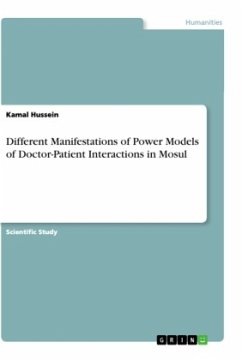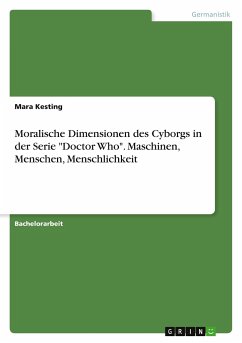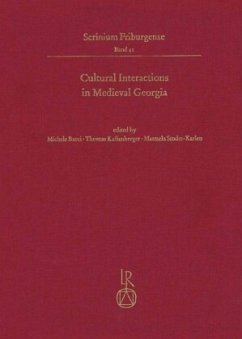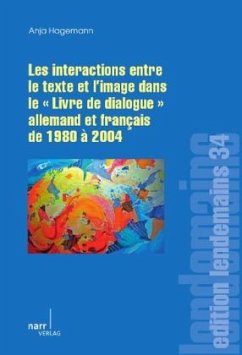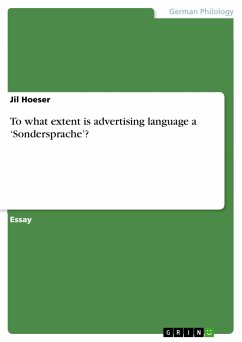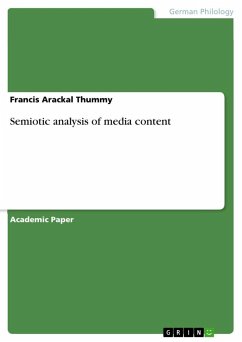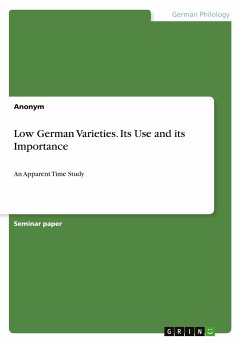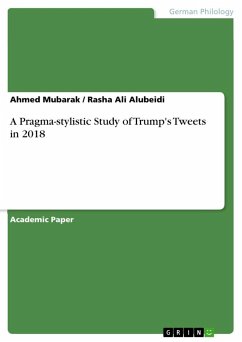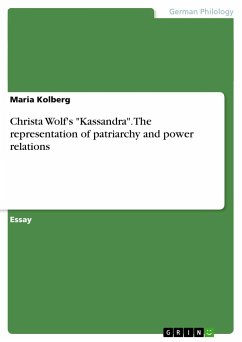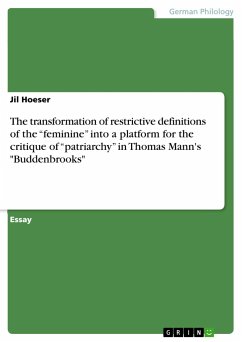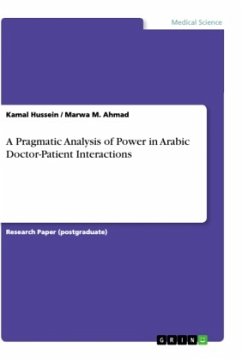
A Pragmatic Analysis of Power in Arabic Doctor-Patient Interactions
Versandkostenfrei!
Versandfertig in 1-2 Wochen
17,95 €
inkl. MwSt.

PAYBACK Punkte
0 °P sammeln!
Research Paper (postgraduate) from the year 2021 in the subject Medicine - Other, University of Mosul (University of Mosul/ Iraq), language: English, abstract: The study investigates the notion of power in Mosuli Arabic doctor-patient encounters from a pragmatic point of view. It does so by studying the interface of power and politeness in interaction. The theoretical framework adopted in the study is Brown and Levinson's (1987) politeness theory. Naturalistic observation method is the method used to collect data from 10 doctors and 38 patients in different public and private medical settings....
Research Paper (postgraduate) from the year 2021 in the subject Medicine - Other, University of Mosul (University of Mosul/ Iraq), language: English, abstract: The study investigates the notion of power in Mosuli Arabic doctor-patient encounters from a pragmatic point of view. It does so by studying the interface of power and politeness in interaction. The theoretical framework adopted in the study is Brown and Levinson's (1987) politeness theory. Naturalistic observation method is the method used to collect data from 10 doctors and 38 patients in different public and private medical settings. The study hypothesizes that doctors aren't inclined to use politeness strategies due to their "expert", "referent" and "legitimate" power whilst patients are inclined to use politeness strategies when they interact with their doctor to lessen the influence of FTAs. The study finds that doctors (both males and females) exercise power when they interact with their patients as they do FTAs baldly-on-record in most cases. It also finds that patients (both males and females) of different ages use politeness mitigation strategies when they interact with a doctor to lessen the influence of an FTA.In addition, the study finds that doctors don't exercise power when they use redressive strategies, due to certain situational factors such as the seriousness of patients' illness and the socio-demographic factor of social status. More academic research in this particular area is recommended to be able to understand power and its impact on society in general and the medical settings in particular.



